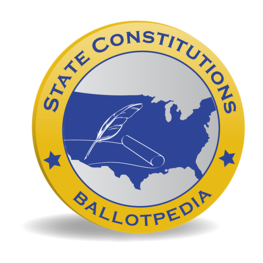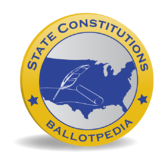| “
|
Chapter 4. Economic and Industrial Development
Article 1. Economic Development
§24-4.00. Promotion of Economic and Industrial Development in Certain Counties. (Amendment 429)
For the promotion of local economic and industrial development, the governing body of Bullock, Coffee, Coosa, Dallas, Etowah, Geneva, Houston, Jefferson, Lawrence, Macon, Marengo, Mobile, Morgan, Talladega, Madison, Shelby, and Tuscaloosa counties and of each municipality situated in said counties, other provisions of law or this Constitution notwithstanding, shall each have, independently or in cooperation with one or more of such governmental entities in such counties, full and continuing power (a) to purchase, lease or otherwise acquire, land, or to utilize land heretofore purchased or otherwise acquired, and to improve and develop such land for use as industrial site, or industrial park, projects, including, but not limited to, grading and the construction of roads, drainage, sewers, sewage and waste disposal systems, parking areas and utilities to serve said projects, and (b) to lease, sell, grant, exchange, or otherwise convey, on terms approved by the governing body of the county, or of municipality exercising such power, all, or any part of, any such project to any person, firm or corporation, public or private, including to any industrial development board or authority heretofore or hereafter created by any such county or municipality therein, for the purpose of the constructing, or developing thereon, by such purchaser or lessees, and the equipping and operating of, industrial, transportation, distribution, warehouse or research facilities, and of office and other facilities auxiliary to the foregoing. Nothing herein shall authorize the counties named, or any municipality there, to construct residential or any other buildings for the purpose of lease or sale.
In carrying out the purposes of this amendment, neither the governing bodies of the counties named hereinabove, nor of any municipality situated in said counties to which this amendment is or becomes applicable, shall be subject to the provisions of sections 93 or 94 of the Constitution of Alabama, as amended. The provisions of this amendment shall be self-executing and the powers granted hereby may be exercised as alternative to, or cumulative with, and in no way restrictive of, powers otherwise granted by law to the governing body of such counties, or of any municipality therein, or to any agency, board, or authority created or approved thereby pursuant to this Constitution or the laws of this state.
The names and addresses of all parties involved in conveyances of land herein provided, and the amount of any monies paid or received, shall be published in the newspaper in the county with the largest circulation.
This amendment shall not be construed to grant any power of eminent domain in addition to that which may be provided otherwise by statute heretofore or hereafter enacted by the legislature of Alabama; nor shall this amendment be construed to affect the annexation statutes heretofore or hereafter enacted by said legislature.
Furthermore, no county or municipality shall sell any real property acquired under the authority hereof for a price less than its actual purchase and development cost of such property, unless:
- (a) The price be approved at a public meeting of the governing body of such county or municipality; and
- (b) At least fourteen (14) days prior to such public meeting at which such price is approved by such governing body, it has published notice in the newspaper with the largest circulation in the county in which the property is located stating (1) the acreage proposed to be sold, (2) the section or sections or subdivisions of record in which the property is located, (3) the price per acre at which sale is proposed to be made, and (4) the place where a map of the property can be examined by the public; and
- (c) The price thus approved is no less than the price advertised as aforesaid; provided, however, that should any real property be acquired for any purpose authorized by this amendment by eminent domain pursuant to other legislative authority as aforesaid, such property shall not be sold, in any event, for less than the price determined and paid pursuant to the orders of the court in such condemnation proceedings. Provided further, that no municipality shall acquire real property in unincorporated areas without a prior consent thereto as expressed in a resolution by the county governing body. Provided further, that no county or municipality shall acquire real property which is located in another county or municipality without such other county's or municipality's prior consent thereto as expressed in a resolution by its governing body. Nothing in the provisions of this constitutional amendment shall be construed to allow construction of dormitories or other type housing on or off university or college campuses. (Amendment 429)
[Note: Amendment 759 is identical to Amendment 429. except for the addition of Baldwin County. For the text of Amendment 759, see §2-4.01.][1]
|
”
|



